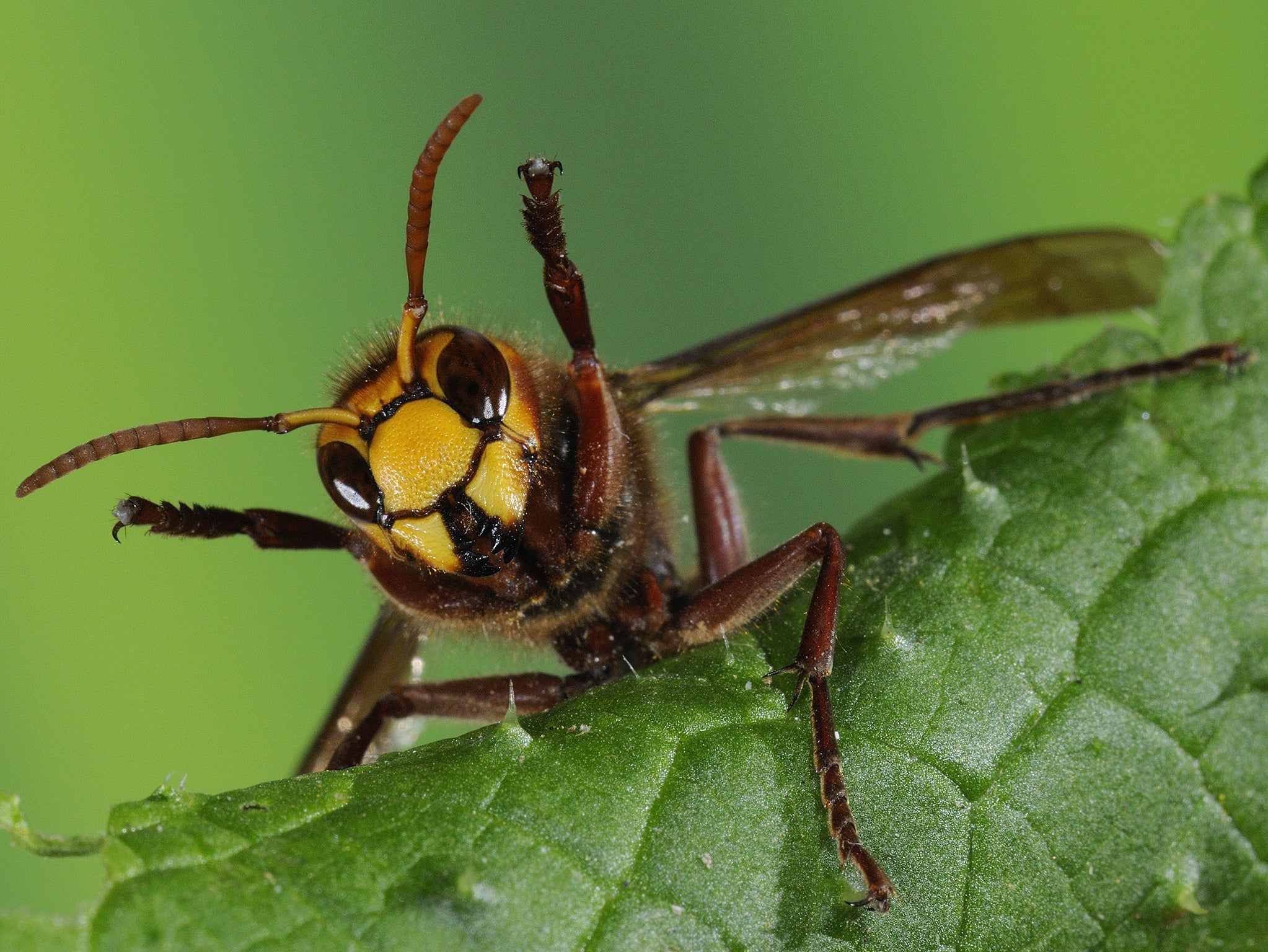A world without wasps would be catastrophic for ecosystems and the global economy
The much-maligned insects are not only crucial in preventing certain plant forms from extinction; they also play an integral part in protecting farmers’ crops across the planet

They are one of the most unwelcome signs of summer. Buzzing through beer gardens, attacking innocent picnics, wasps arrive ominously with a sting in their tails. Universally disliked, they are swatted, trapped and cursed. But would a wasp-free world really be a better place?
Despite their poor public image, wasps are incredibly important for the world’s economy and ecosystems. Without them, the planet would be pest-ridden to biblical proportions, with much reduced biodiversity. They are a natural asset of a world dominated by humans, providing us with free services that contribute to our economy, society and ecology.
Wasps, as we know, turn up everywhere. More than 110,000 species have been identified, and it is estimated there are still another 100,000 waiting to be discovered. One recent study described 186 new wasp species in one small corner of Costa Rican rainforest alone. In contrast there are only around 5,400 species of mammals, and 14,000 recorded species of ant.
This huge and diverse assemblage belongs to the order Hymenoptera and is divided into two groups, the Parasitica and the Aculeata. Almost 80,000 species of wasps belong to the Parasitica group, which lay their eggs in or on their prey or plants using elongated tubular organs called ovipositors. The remaining 33,000 species are Aculeates, most of which are predators, and the ones whose ovipositors have been modified through evolution to form a sting.
Both parasitic and predatory wasps have a massive impact on the abundance of arthropods, the largest phylum in the animal kingdom, which includes spiders, mites, insects, and centipedes. They are right at the top of the invertebrate food chain. Through the regulation of both carnivorous and plant-feeding arthropod populations, wasps protect lower invertebrate species and plants. This regulation of populations is arguably their most important role, both ecologically and economically.
Although the majority of wasps lead solitary lives, it is the 1,000 or so species of social wasps which make the biggest impression on insect populations. Social wasp queens share their nests with thousands of offspring workers, who raise upwards of 10,000 sibling larvae during the colony cycle. This means a single nest provides a whopping bang for buck in terms of ecosystem services, killing vast numbers of spiders, millipedes and crop-devouring insects.
Many social wasps are generalist predators too, which means they control populations of a wide range of species, but rarely wipe any single species out. This makes them an extremely useful, minimising the need for toxic pesticides, but unlikely to threaten prey biodiversity. It is not yet possible to accurately quantify their huge economic value in this regard, but their diet of agricultural pests such as caterpillars, aphids and whiteflies makes a massive contribution to global food security.
Wasps also play a crucial role in ecosystems as specialist pollinators. The relationship between figs and fig wasps is arguably the most interdependent pollination symbiosis known to man. Without one another, neither the fig nor fig wasp can complete their life-cycle – a textbook example of co-evolution which is estimated to have been ongoing for at least 60m years. Figs are keystone species in tropical regions worldwide – their fruit supports the diets of at least 1,274 mammals and birds. The extinction of fig wasps would therefore be catastrophic in tropical ecosystems.
Almost 100 species of orchids are solely reliant on the action of wasps for pollination. The plants mimic the appearance and chemical profile of female wasps, tricking males into attempting to mate with them, so that as the male wasps attempt to copulate with the flower they are loaded with pollen which is then transferred to the next male-seducing orchid. Without the wasp, these orchids would be extinct.
Wasps also function as generalist pollinators, inadvertently transferring pollen between flowers they visit for nectar collection. One type even provide their larvae with pollen instead of insect prey. These “pollen-wasps” are considered to perform the same ecological roles as bees, pollinating a diverse array of plants.
Unfortunately, while bees are credited with contributing at least €100 billion a year to the global economy through their acts of pollination, the works of wasps in the same sector is often ignored.
Even the wasps' sting could have a positive impact on the human population. Medical researchers are exploring the potential use of biologically active molecules found within wasp venom for cancer therapy. A chemical found in the venom of the tropical social waspPolybia paulista, has been shown to selectively destroy various types of cancerous cells.
Since they protect our crops, make ecosystems thrive, sustain fruit and flowers, and might help us fight disease, perhaps we should appreciate the wonderful work of wasps before we next swipe at them with a rolled-up newspaper. They may be a nuisance on a sunny afternoon – but a world without wasps would be an ecological and economic disaster.
This article was first published in The Conversation. Seirian Sumner is a senior lecturer in behavioural biology and Ryan Brock is a master of research candidate at the University of Bristol
Join our commenting forum
Join thought-provoking conversations, follow other Independent readers and see their replies
0Comments